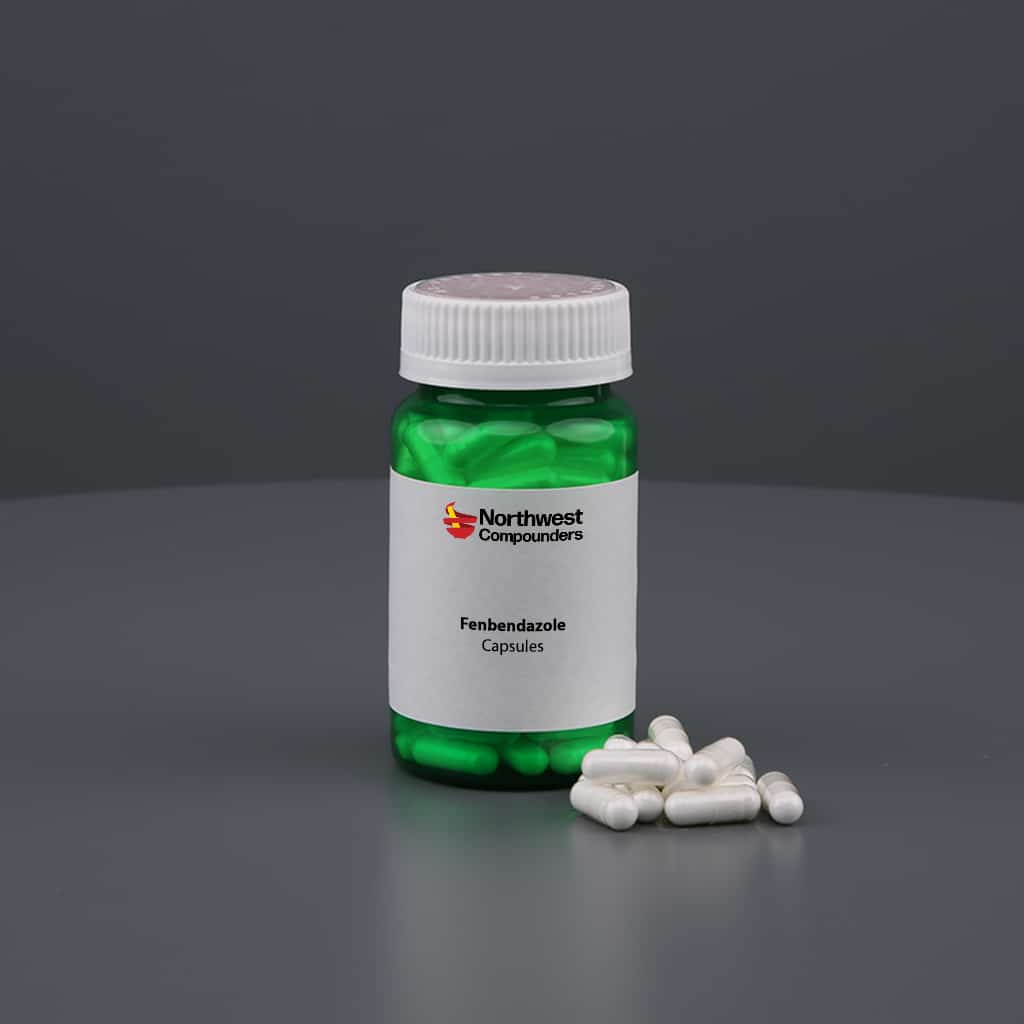fenbendazole capsules: Future Research and Potential Applications
Discovering the Systems Behind Fenbendazole and Its Effect On Pet Wellness
Fenbendazole is an extensively utilized anthelmintic known for its effectiveness versus various bloodsuckers. Its key mechanism involves the inhibition of microtubule development, which interrupts essential procedures in these virus. Past its antiparasitic properties, fenbendazole also appears to enhance immune responses and has anti-inflammatory benefits. Comprehending these complex effects might expose brand-new applications for animal wellness. Concerns remain concerning its complete capacity and safety account.
The Pharmacokinetics of Fenbendazole
The pharmacokinetics of fenbendazole, a commonly made use of anthelmintic in veterinary medicine, entails the research of its absorption, circulation, metabolism, and discharging within pet systems. After management, fenbendazole is quickly soaked up from the gastrointestinal tract, with peak plasma focus happening within hours. Its circulation is influenced by variables such as cells binding and lipid solubility, enabling it to pass through different cells properly. The drug goes through considerable metabolism primarily in the liver, where it is exchanged energetic and inactive metabolites. These metabolites contribute in the drug's overall effectiveness and safety account. Excretion takes place primarily with feces, with a smaller sized proportion eliminated via pee. The half-life of fenbendazole varies among types, which affects dosing regimens. Recognizing these pharmacokinetic properties is vital for maximizing its healing usage and ensuring reliable parasite control in vet techniques.
Devices of Activity Versus Parasites
Fenbendazole applies its antiparasitic impacts primarily via the inhibition of microtubule formation in parasites. This disturbance affects their architectural honesty and cellular features, leading to damaged basal metabolism. Consequently, the medicine efficiently compromises the survival and reproduction of various parasitic organisms.
Restraint of Microtubule Formation
Restraint of microtubule formation stands for a crucial device whereby certain anthelmintic representatives, consisting of fenbendazole, exert their results on parasites. Fenbendazole binds to tubulin, a healthy protein that creates microtubules, interrupting the polymerization procedure needed for microtubule assembly. This interruption harms important mobile functions, consisting of mitosis, intracellular transportation, and architectural honesty. As microtubules play an important function in keeping the shape and feature of parasitical cells, their restraint brings about cell cycle arrest and ultimate fatality of the bloodsucker. This mechanism is especially efficient versus nematodes, as their reliance on microtubules for wheelchair and nutrient absorption makes them at risk to fenbendazole. As a result, the restraint of microtubule formation is a vital facet of fenbendazole's restorative efficiency in vet medication.
Disruption of Basal Metabolism
Disrupting energy metabolism is one more crucial system through which fenbendazole targets parasitical microorganisms. This anthelmintic modifies the power manufacturing paths within parasites, mostly influencing their capability to generate adenosine triphosphate (ATP) By hindering sugar uptake and interrupting mitochondrial function, fenbendazole limits the energy sources crucial for the survival and reproduction of these organisms. Because of this, parasites come to be increasingly at risk to environmental anxieties and immune reactions. The disturbance in power metabolic process not only influences the bloodsuckers directly however also minimizes their capacity to take in nutrients, even more impairing their development - fenbendazole 444. Generally, the disturbance of basal metabolism represents a fundamental facet of fenbendazole's effectiveness against numerous parasitic infections, contributing substantially to enhanced animal wellness outcomes
Possible Side Impacts and Safety Account
The potential adverse effects and safety and security profile of fenbendazole warrant mindful consideration, specifically in veterinary applications. While usually considered as secure, some animals might experience unfavorable reactions, including stomach disturbances such as throwing up and looseness of the bowels. Additionally, neurological signs and symptoms, although rare, have been reported in delicate individuals, highlighting the demand for monitoring throughout therapy.

Fenbendazole's safety in numerous varieties, including dogs and pet cats, has actually been recorded, yet dose and period of therapy should be thoroughly managed to minimize dangers. Pregnant or breast feeding pets may additionally require unique attention, as the effects on establishing unborn children or nursing children are not completely recognized.
Normal veterinary examinations can assist mitigate prospective side effects and assure the drug is administered appropriately. While fenbendazole is an efficient anthelmintic agent, alertness concerning its side results is vital for keeping pet health.
Fenbendazole's Influence on Immune Function
Fenbendazole has actually been kept in mind for its prospective to regulate body immune system responses in animals. Its anti-inflammatory buildings might add to boosted you can try this out immune feature, providing a twin advantage in taking care of wellness (fenbendazole). Understanding these impacts is important for reviewing fenbendazole's role in vet medicine
Immune System Inflection

Anti-inflammatory Qualities
Anti-inflammatory results stand for a significant aspect of fenbendazole's influence on immune feature. Research indicates that fenbendazole may lower the manufacturing of pro-inflammatory cytokines, which are crucial in mediating inflammatory actions. By modulating these cytokines, fenbendazole can possibly reduce inflammation-related problems in animals. This anti-inflammatory activity not only help in handling signs and symptoms linked with various diseases but also improves general immune system effectiveness. Additionally, its capability to advertise a well balanced immune response helps prevent too much inflammatory damage, which can result in persistent health concerns. Fenbendazole's duty in swelling administration underscores its significance in veterinary medicine, providing a twin benefit of antiparasitic action and immune system assistance for pet health.
Applications Past Traditional Parasitic Infections
While largely recognized for its effectiveness versus different parasitical infections, fenbendazole has gathered interest for possible applications yet conventional scope. Current studies suggest that fenbendazole may have beneficial impacts on cellular wellness and immune action, making it a fascinating candidate for handling various other health and wellness conditions in animals. Its reported anti-inflammatory properties may offer relief for animals enduring from chronic inflammatory diseases. In addition, some study indicates that fenbendazole can play a function in sustaining the total wellness of animals by boosting nutrient absorption and gastrointestinal health and wellness. Additionally, its possible as an accessory treatment in cancer therapy has sparked interest, as preliminary searchings for suggest it could inhibit growth cell development in particular contexts. These diverse applications highlight fenbendazole's flexibility, urging further expedition into its complex benefits for animal wellness past its traditional use as a deworming agent.
Future Study Directions and Effects for Pet Wellness
The exploration of fenbendazole's prospective applications has actually opened up new methods for research focused on improving pet health. Future research studies could concentrate on its efficiency against a broader variety of virus, including microorganisms and infections, consequently broadening its function in vet medication. The effects of fenbendazole's mechanisms, such as its effect on immune modulation, warrant even more investigation to comprehend exactly how it can reinforce total wellness in different varieties.
In addition, research might explore suitable dosages and formulas to make the most of efficacy while minimizing potential side results. Exploring fenbendazole's synergistic results with other drugs could cause extra efficient therapy methods. Longitudinal research studies reviewing long-lasting results in animals treated with fenbendazole could provide useful insights into its safety and effectiveness. Generally, the ongoing exploration of fenbendazole uses appealing capacity to boost animal health, demanding a collective approach among scientists, vets, and pharmaceutical designers to help with improvements around.
Frequently Asked Inquiries
Can Fenbendazole Be Used in Animals for Bloodsucker Avoidance?
The concern of whether fenbendazole can be made use of in animals for parasite avoidance matters, as manufacturers seek reliable treatments (fenbendazole capsules). Research shows it might supply advantages, however correct standards and find here vet guidance are crucial for risk-free usage
What Is the Suggested Dosage of Fenbendazole for Different Pets?

Are There Any Kind Of Known Medicine Interactions With Fenbendazole?
Current understanding suggests that fenbendazole may connect with specific medicines, potentially impacting their efficiency or metabolism. Vet professionals suggest seeking advice from with a vet to analyze specific animal cases and determine any kind of possible interactions prior to administration.
Just How Does Fenbendazole Contrast to Other Antiparasitic Medications?
Fenbendazole is typically compared to other antiparasitic medications based upon effectiveness, range of task, and security accounts. It is preferred for its efficiency against a vast array of parasites while typically showing very little side results in animals.
Is Fenbendazole Effective Against Viral or Bacterial Infections in Animals?
The efficiency of fenbendazole versus viral or microbial infections in pets remains unverified. Research study largely concentrates on its antiparasitic homes, with limited proof supporting any role in treating non-parasitic infections in vet medicine.